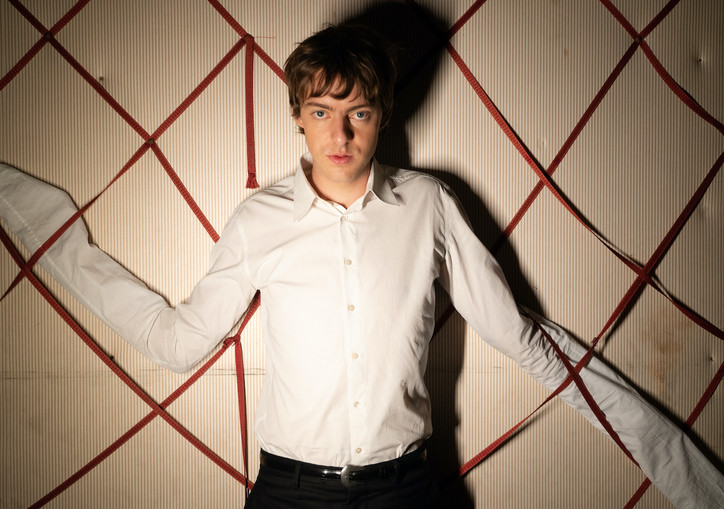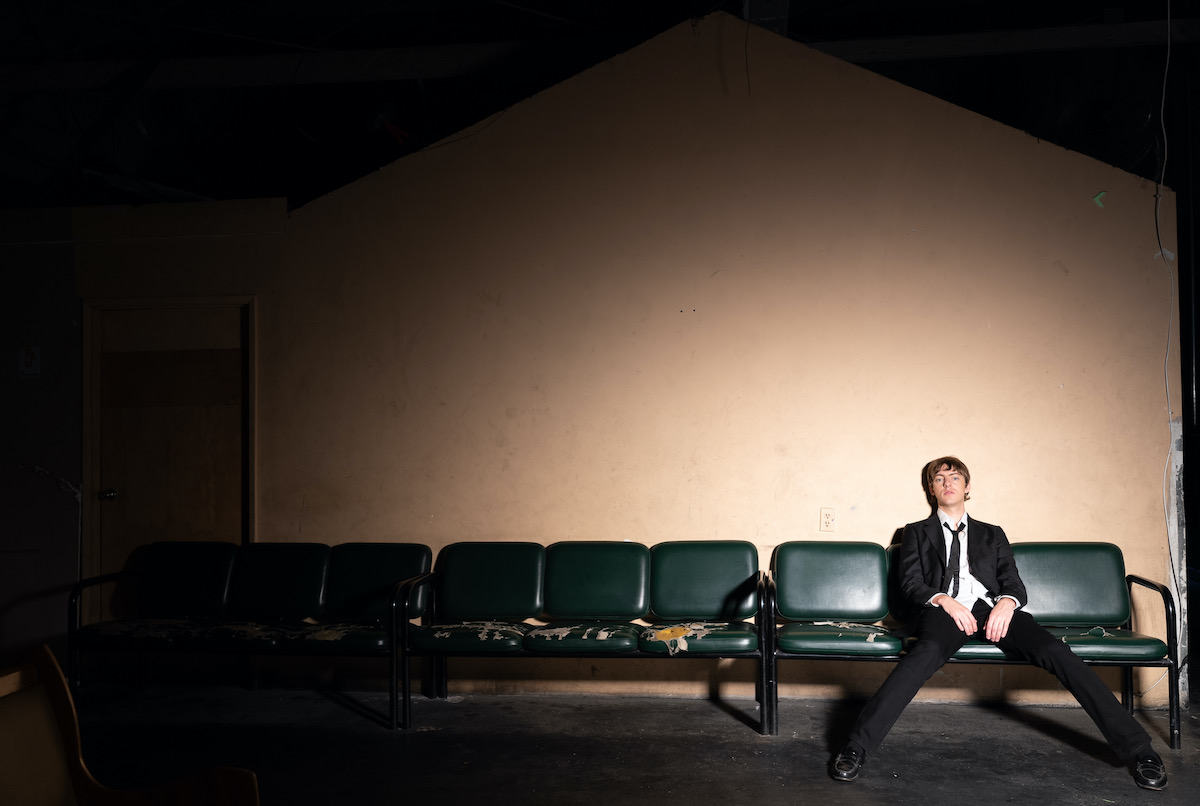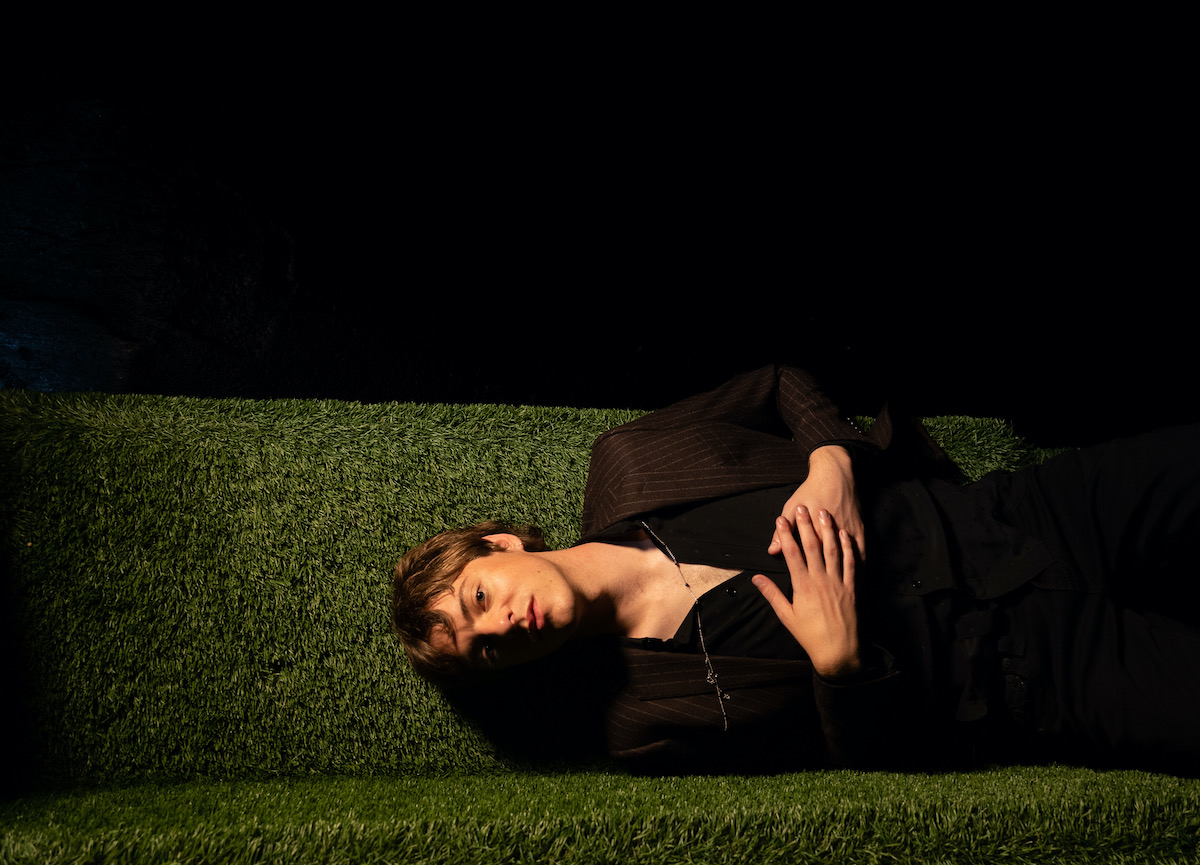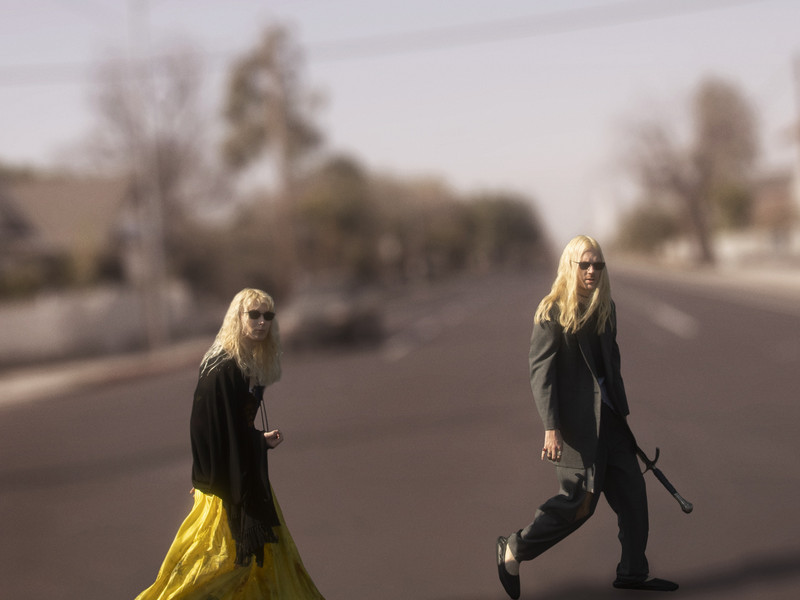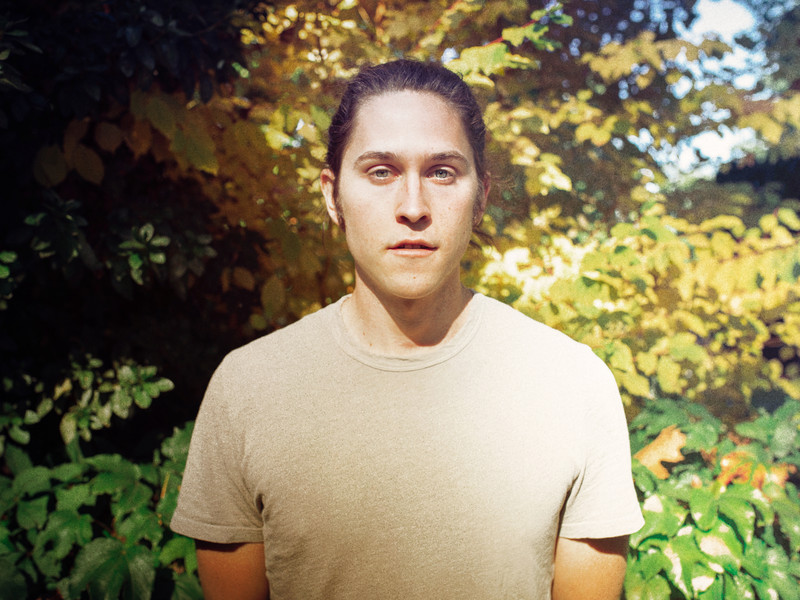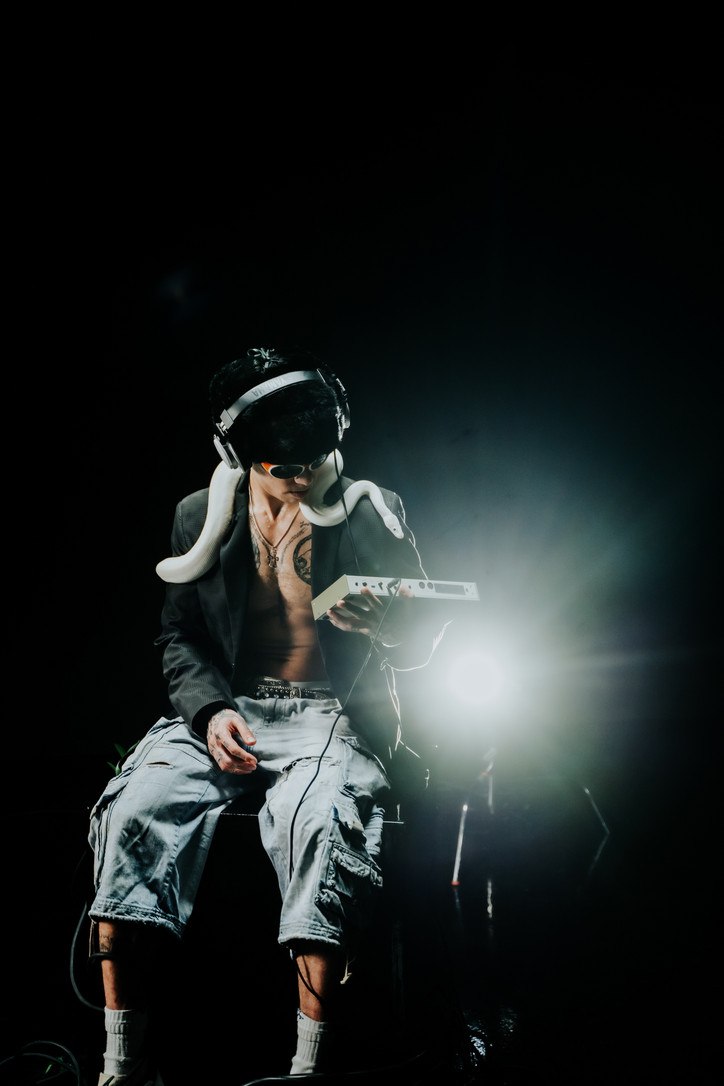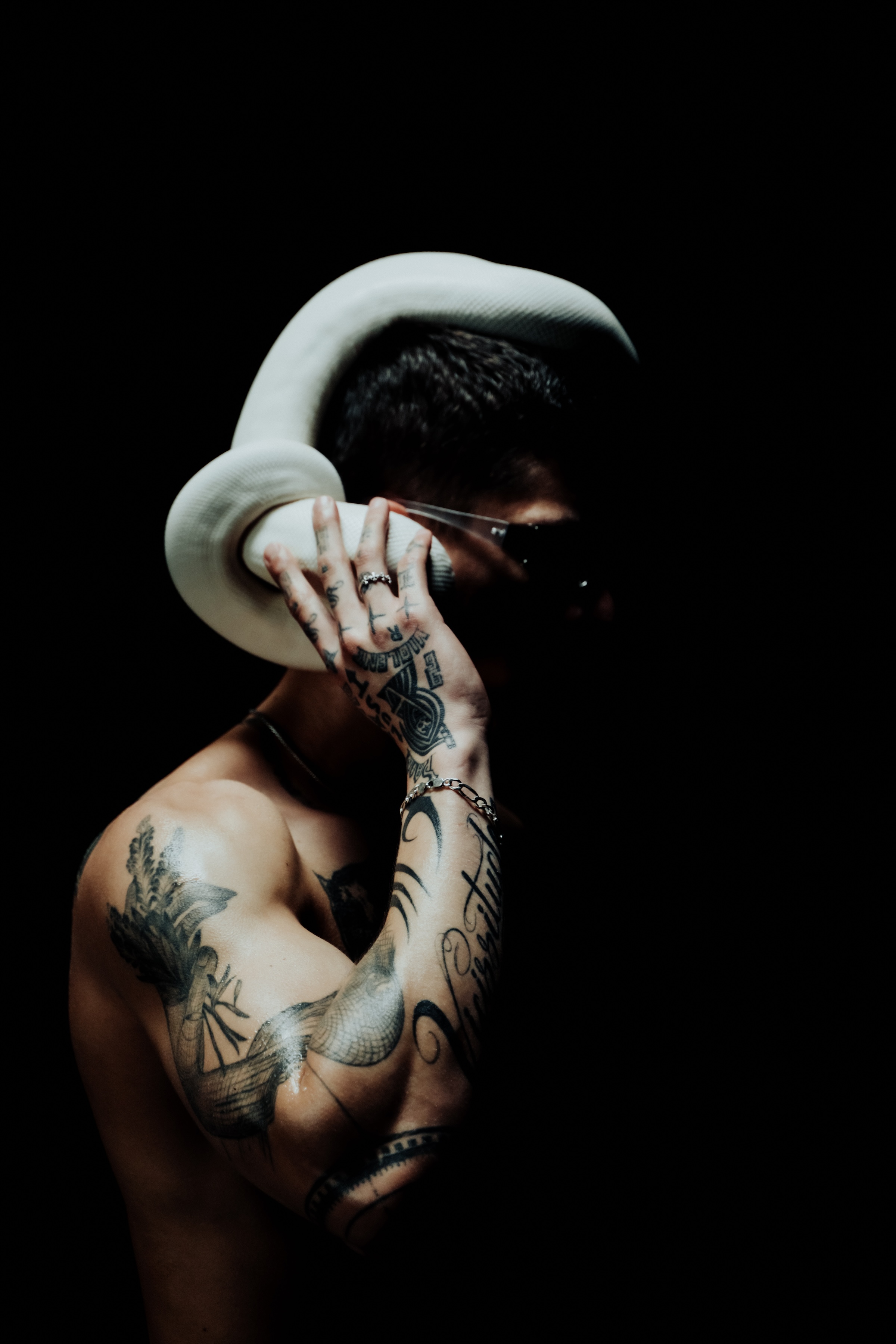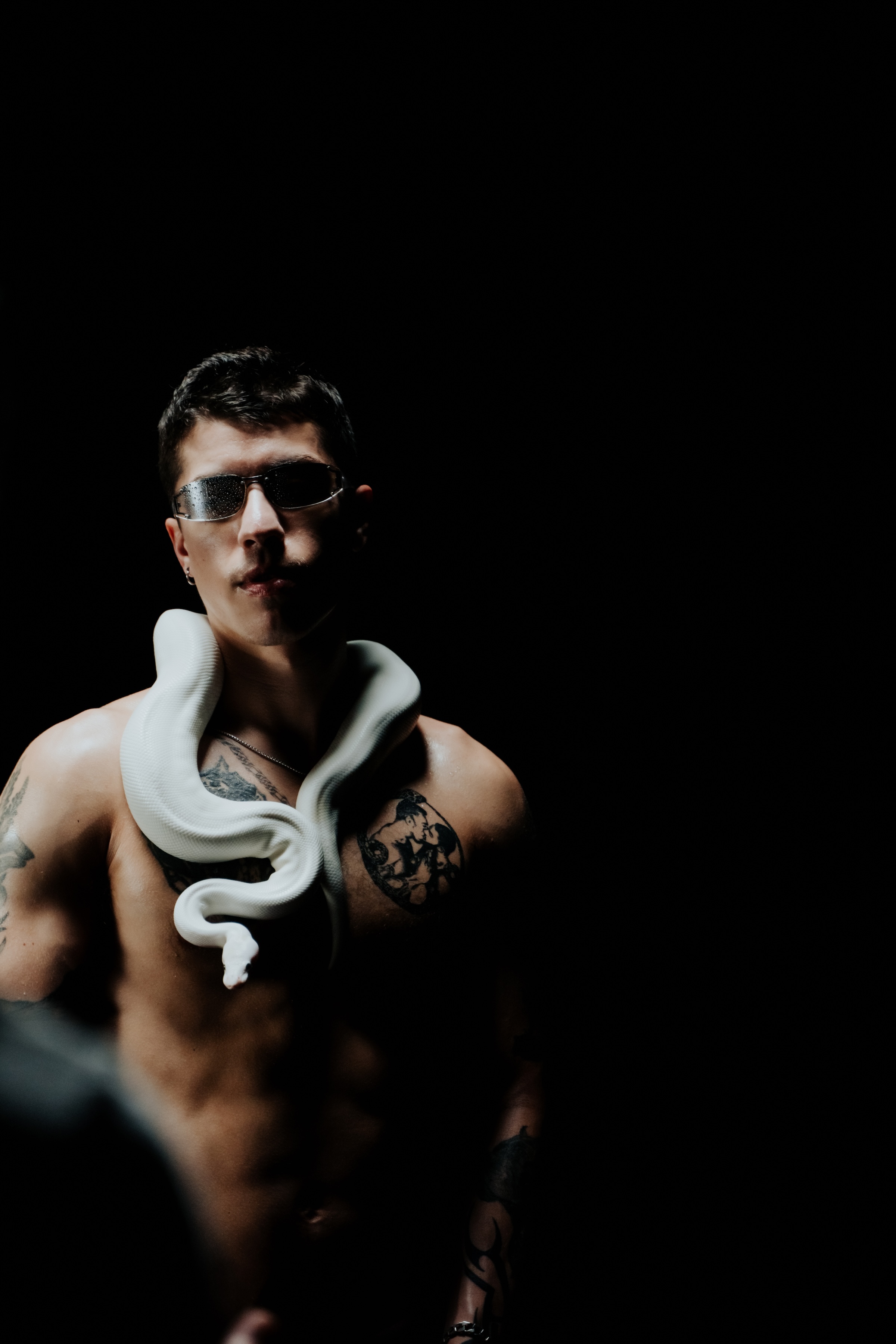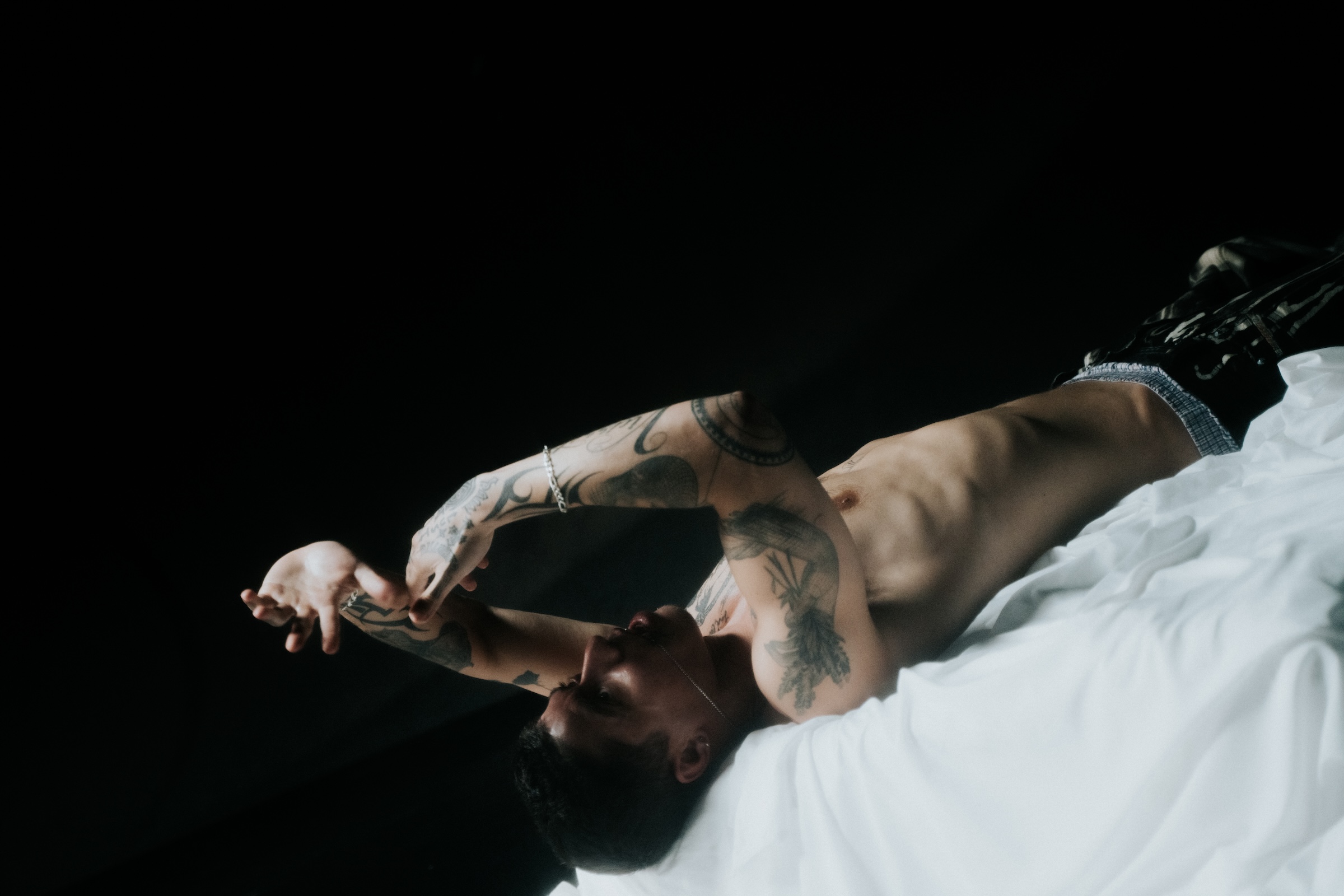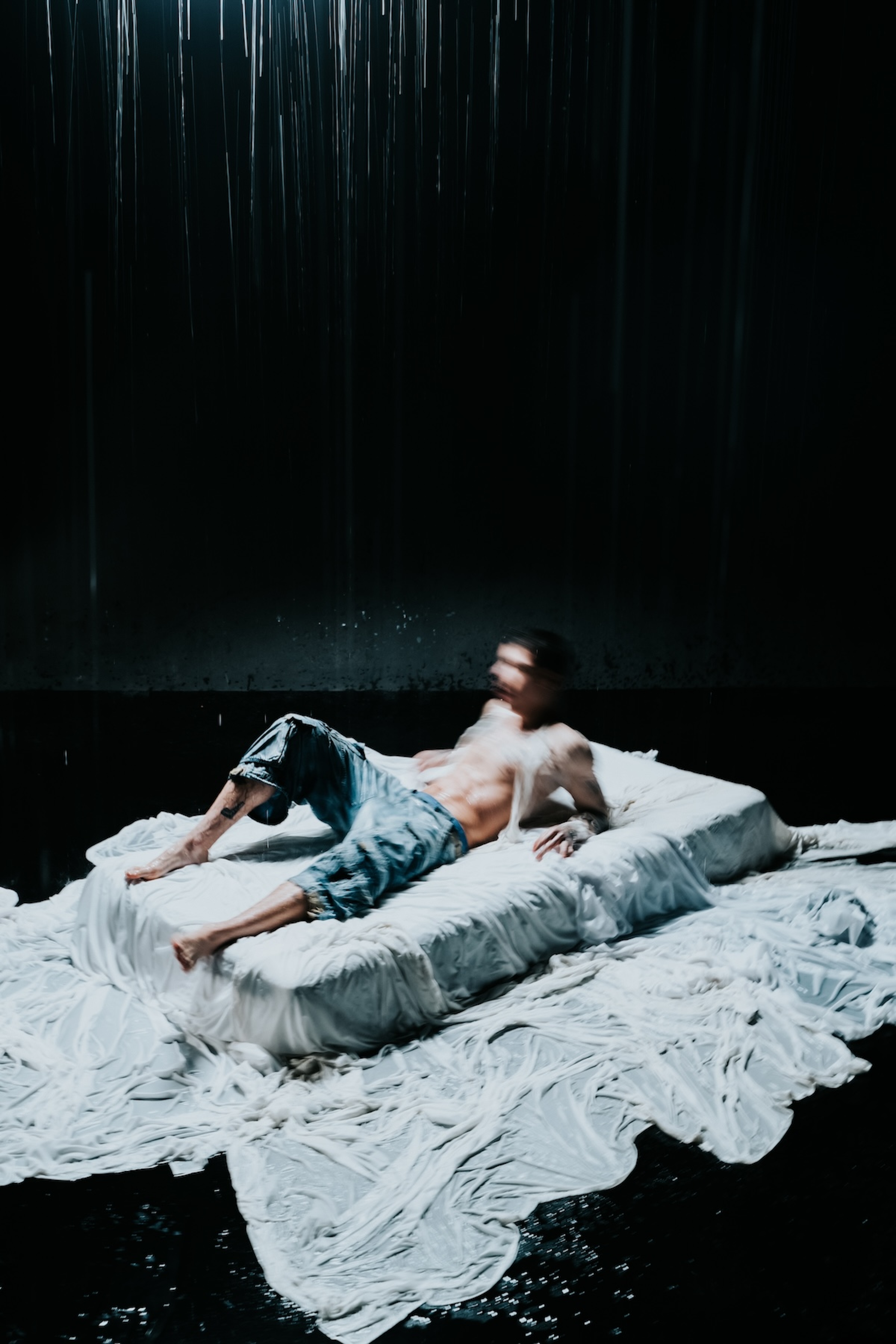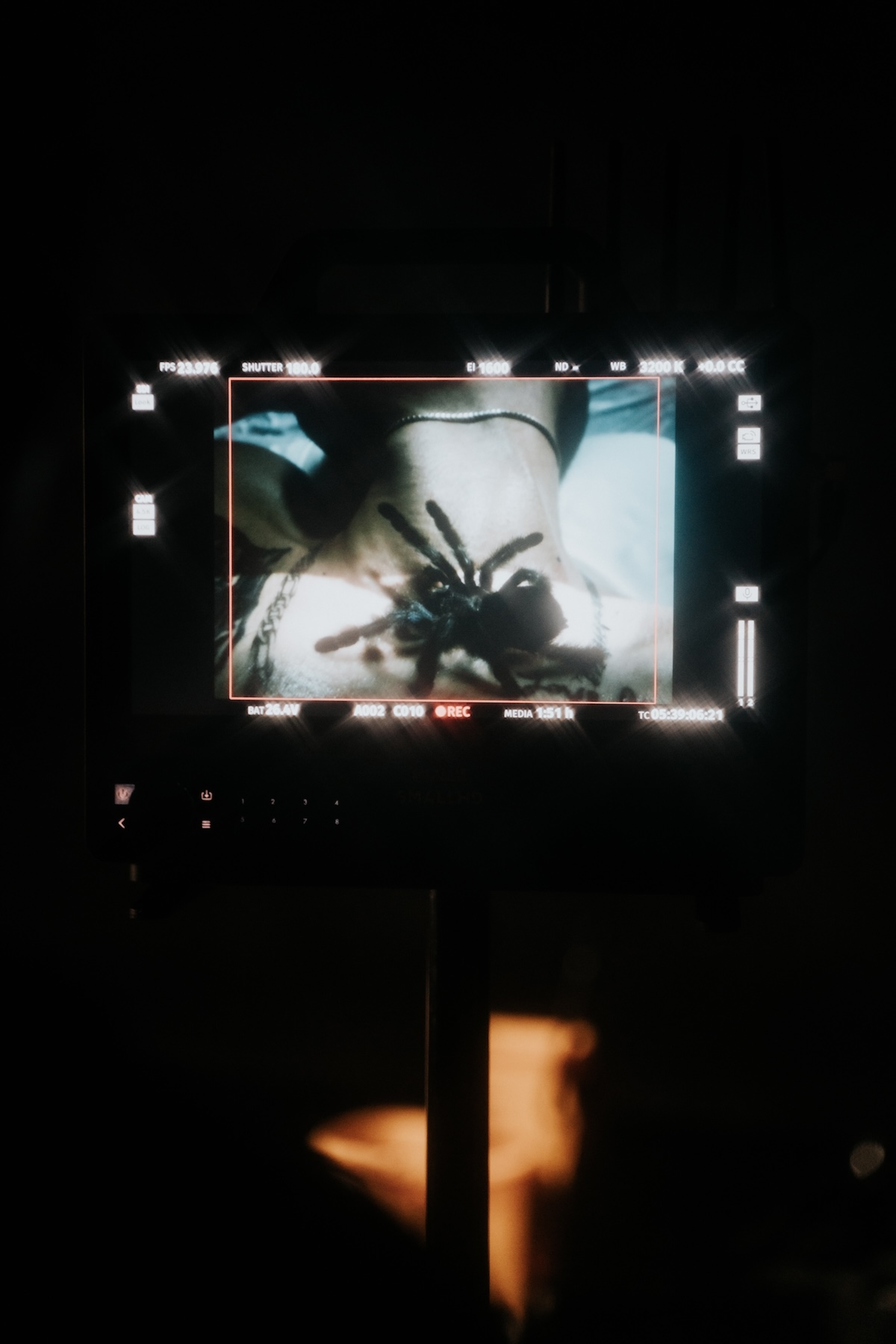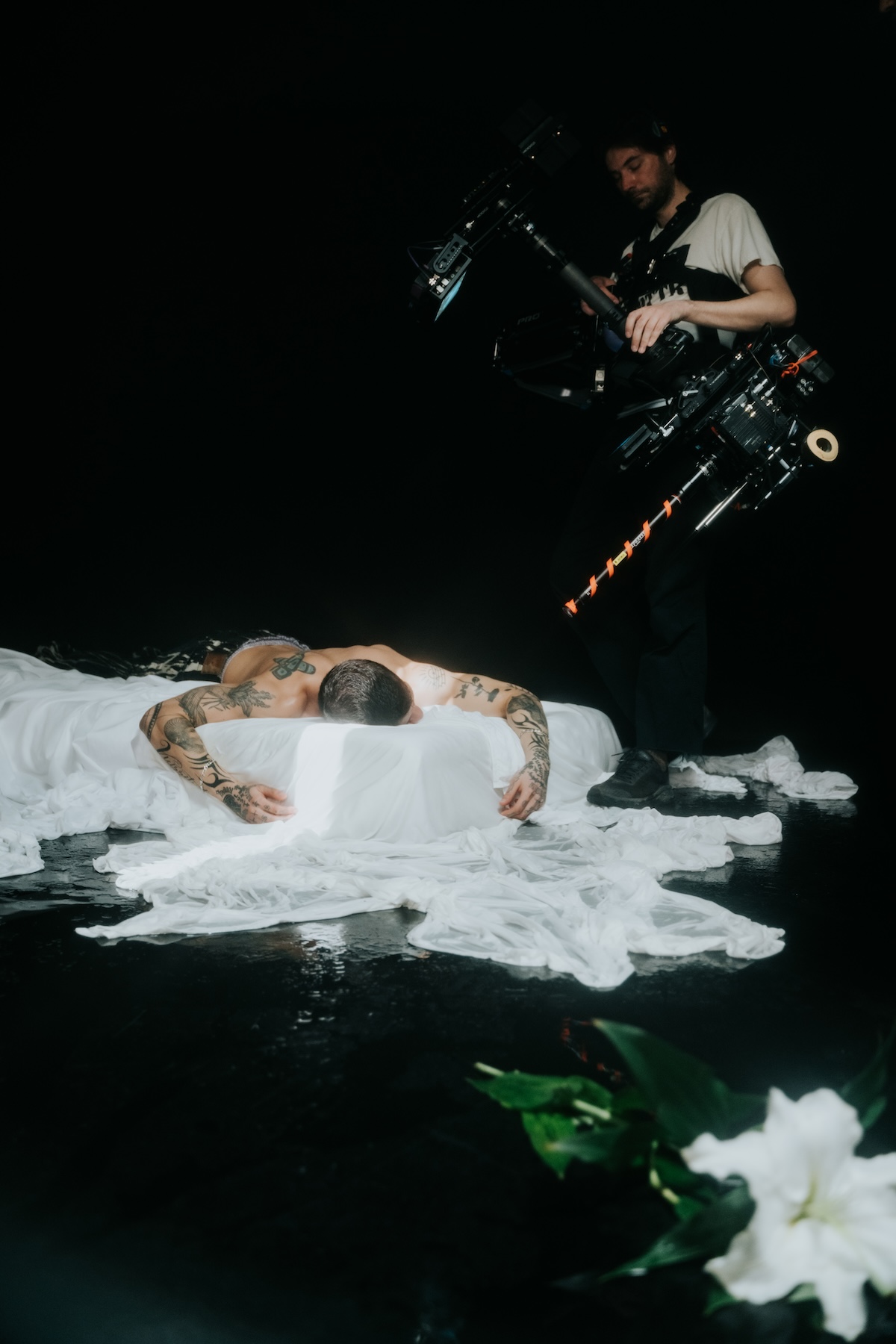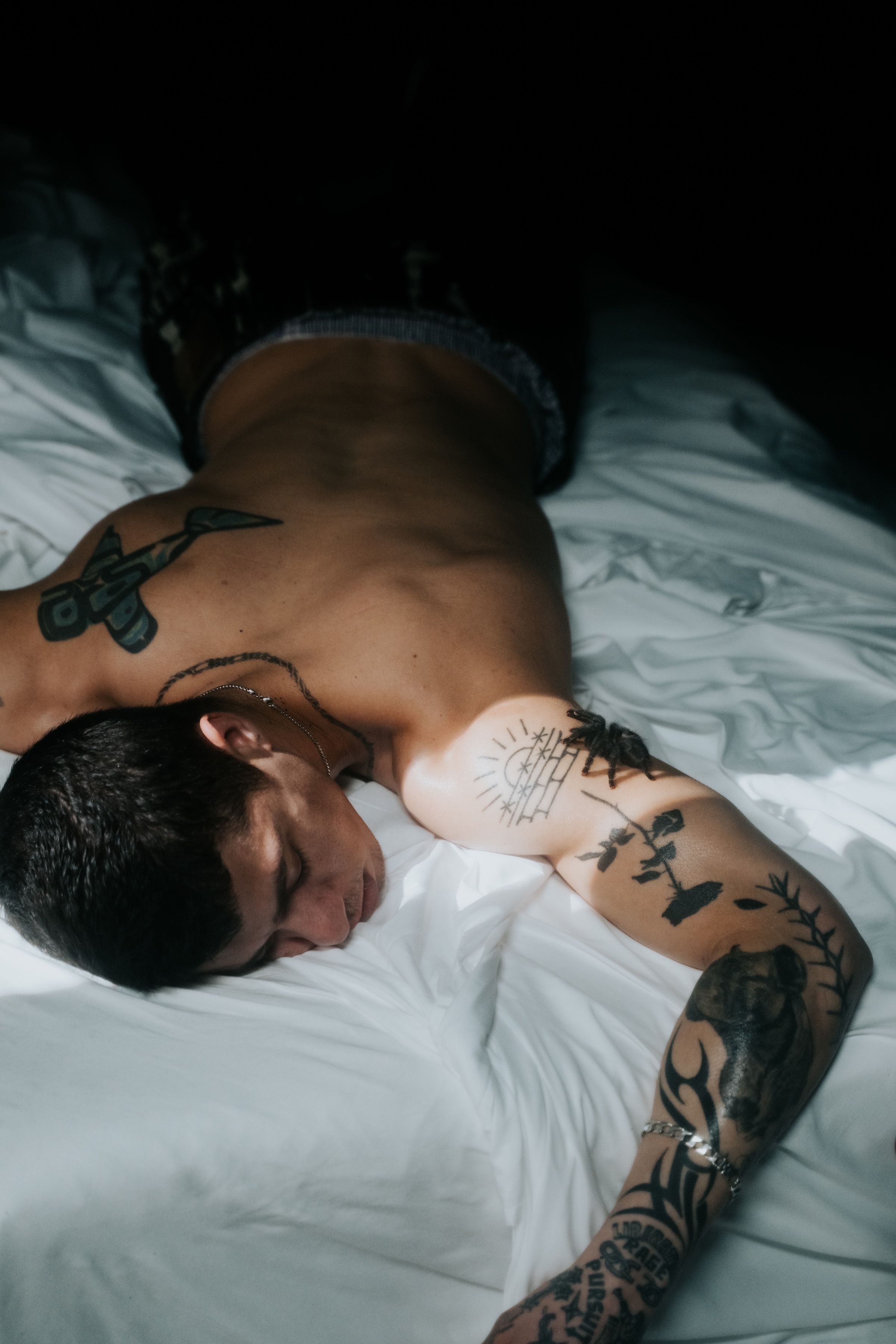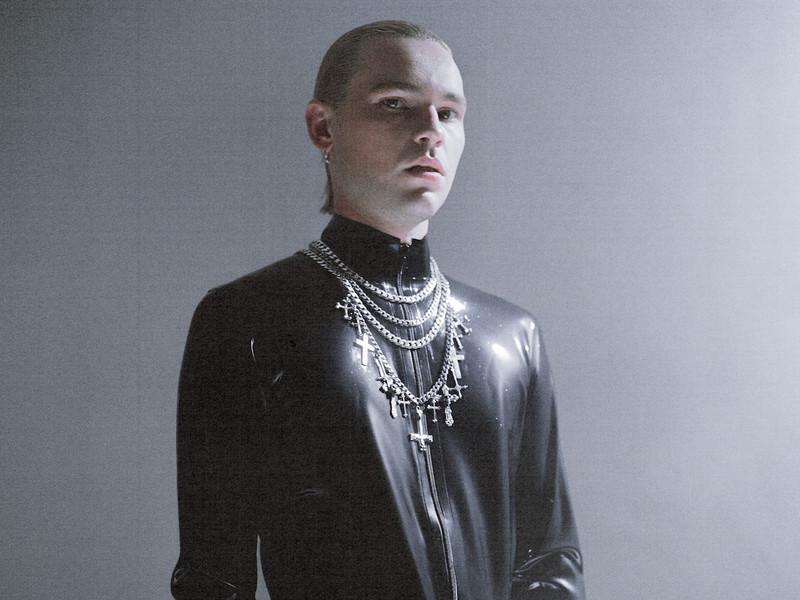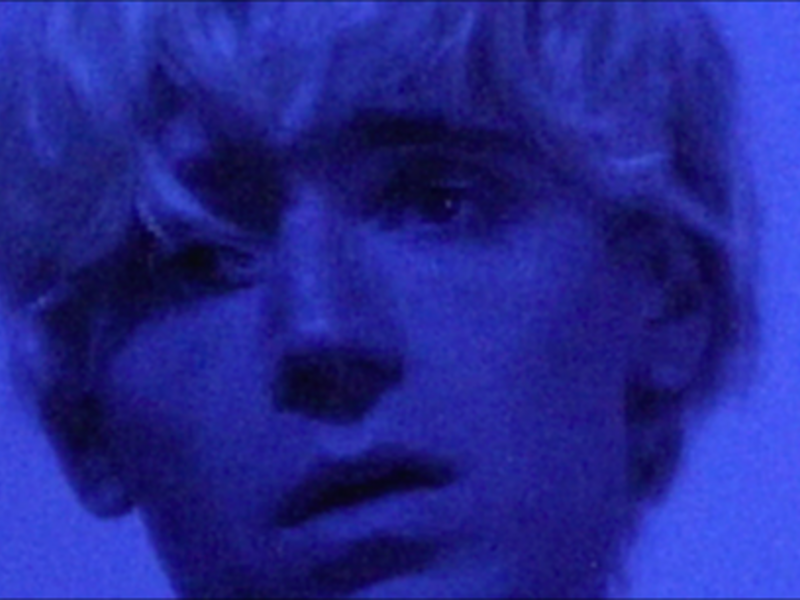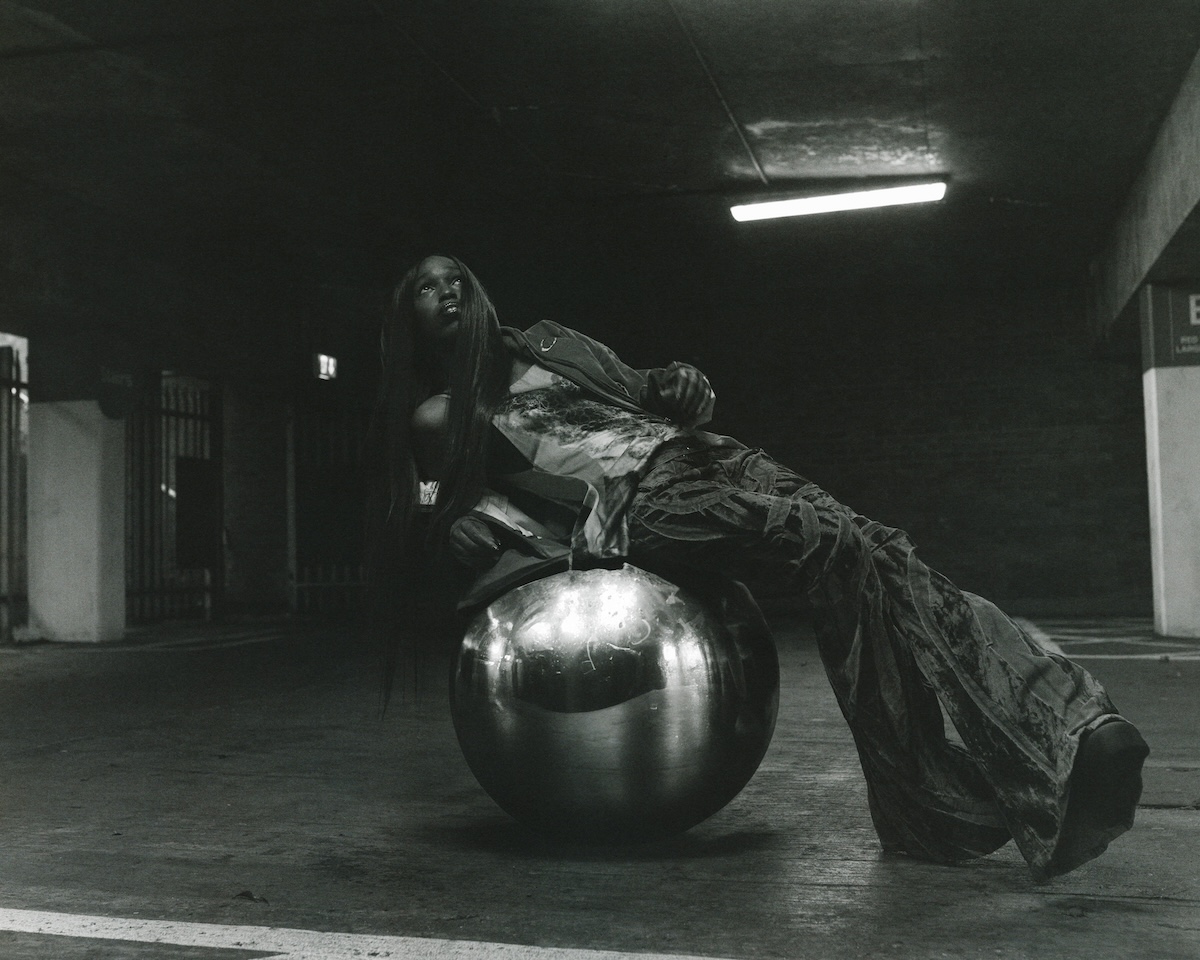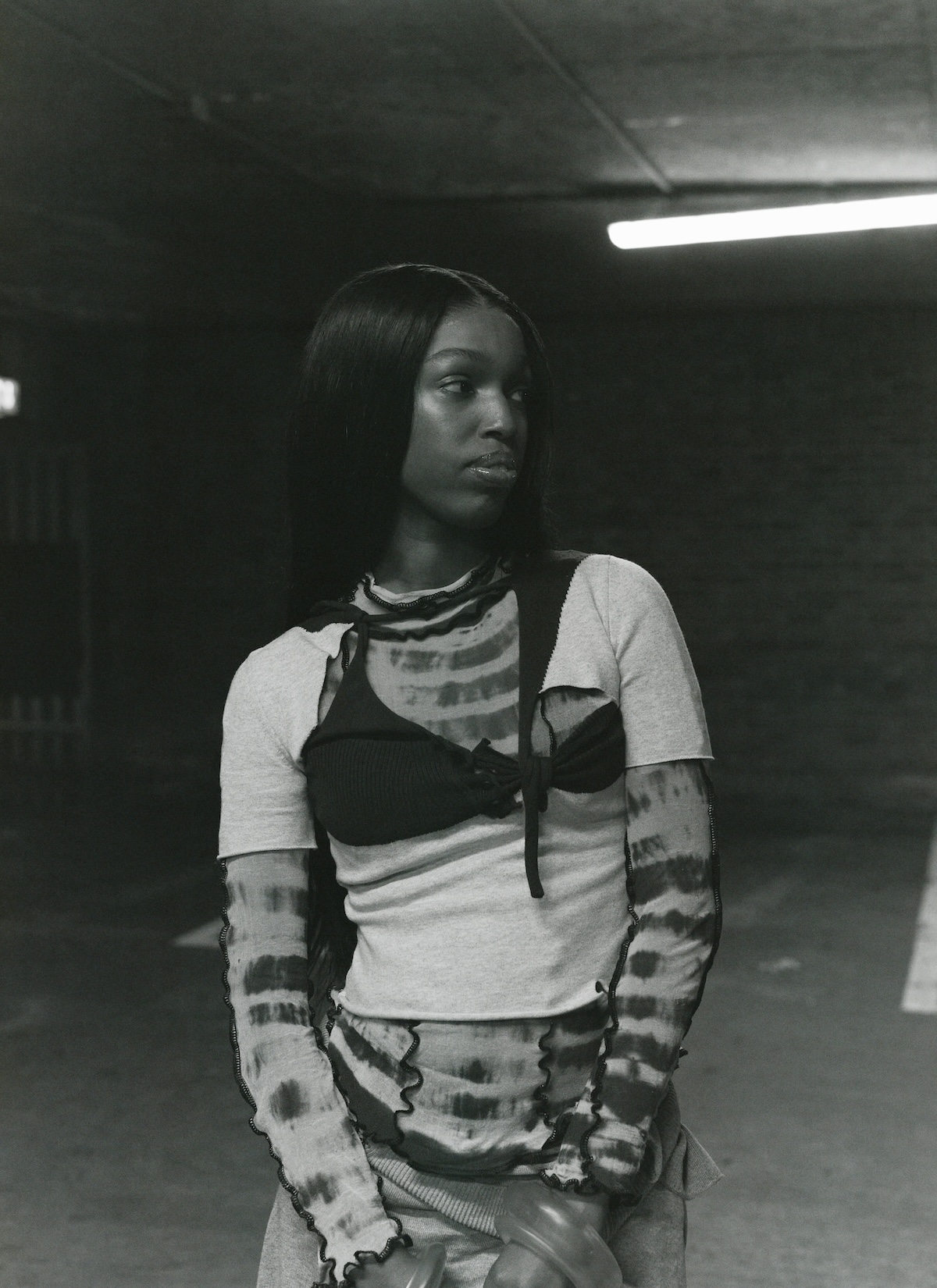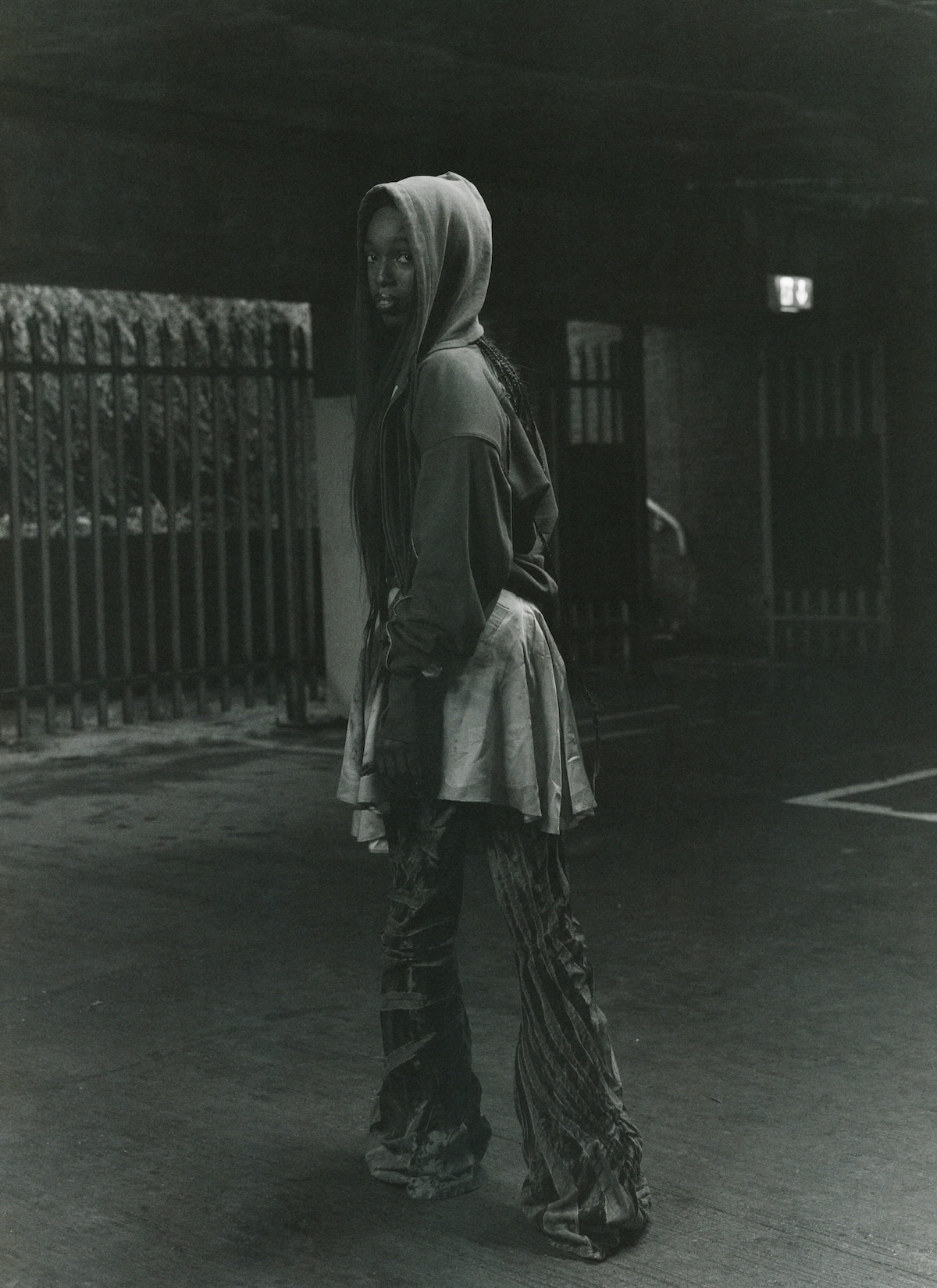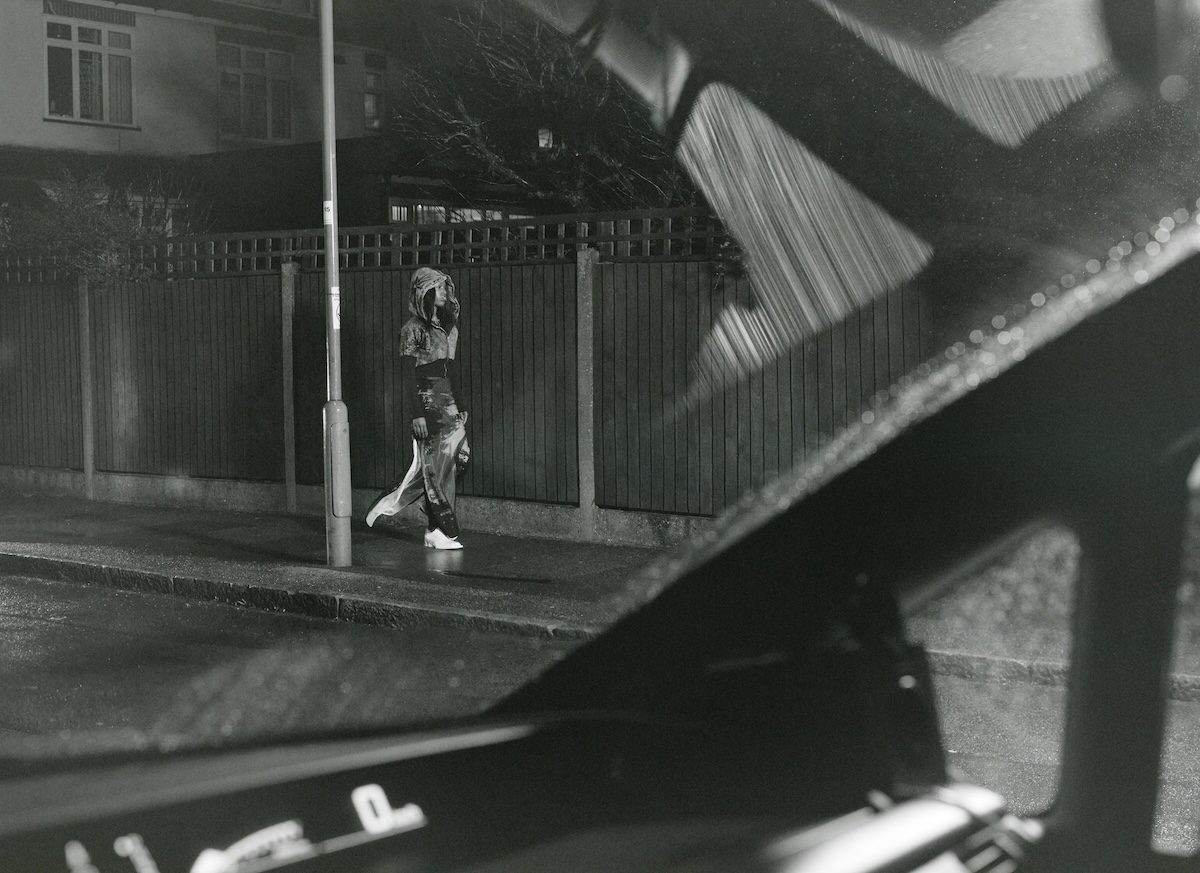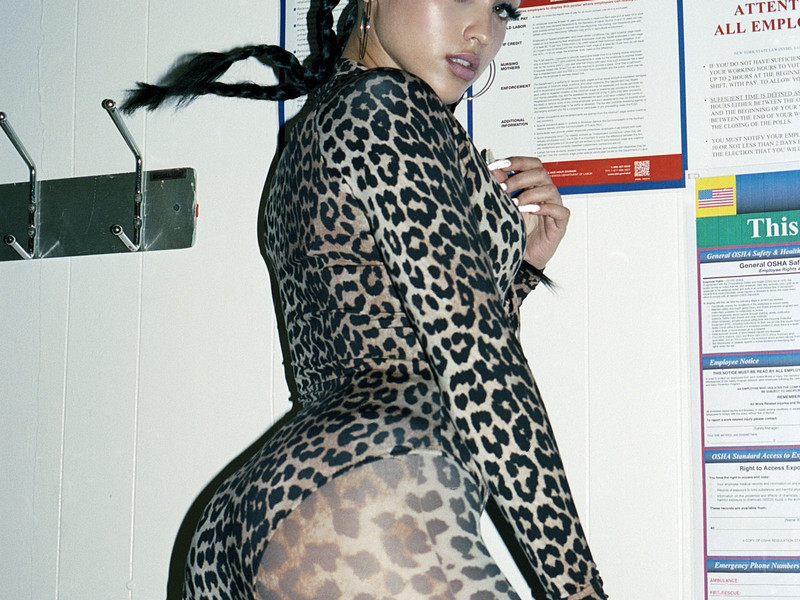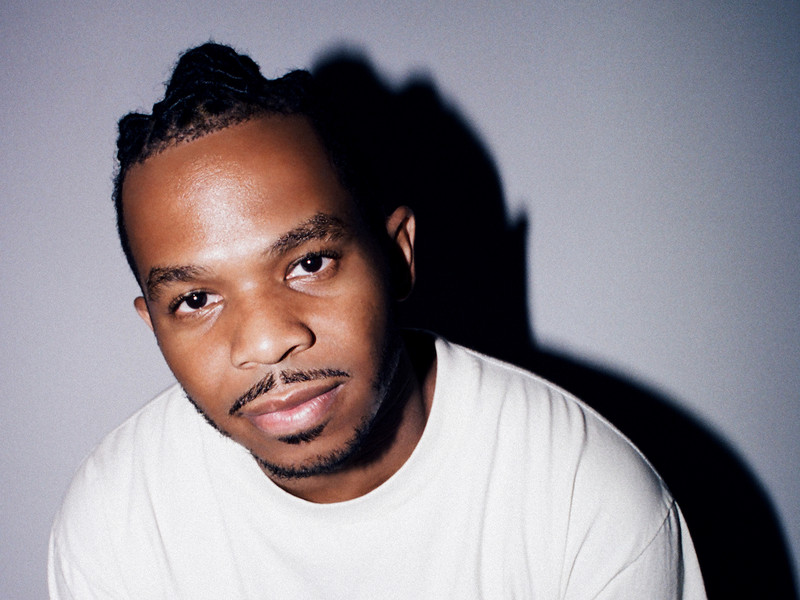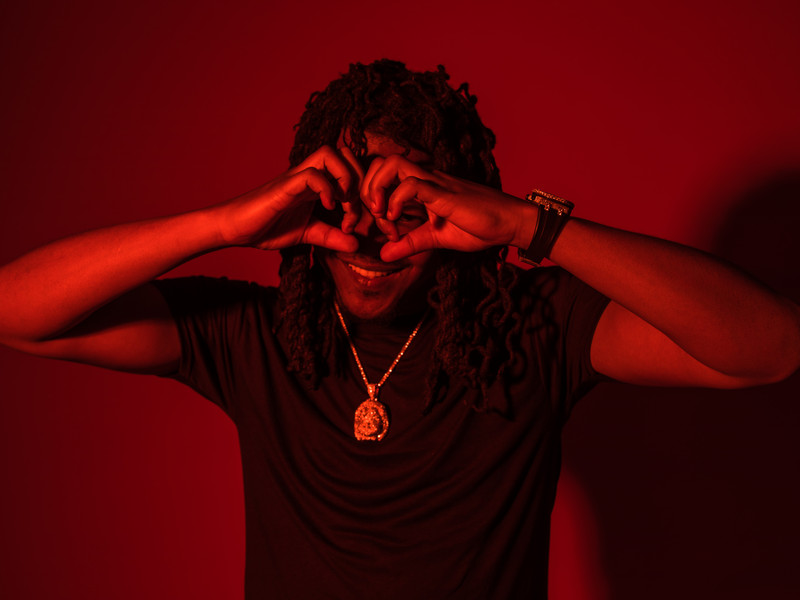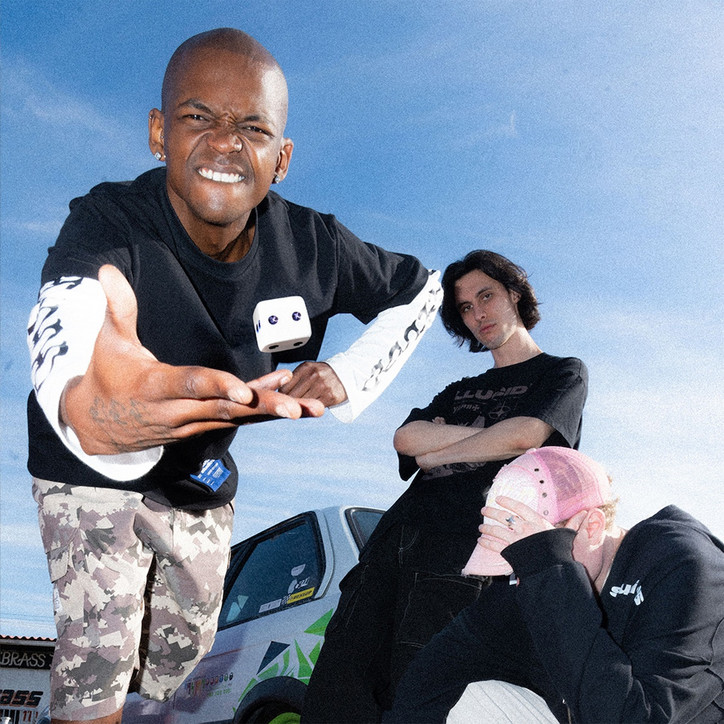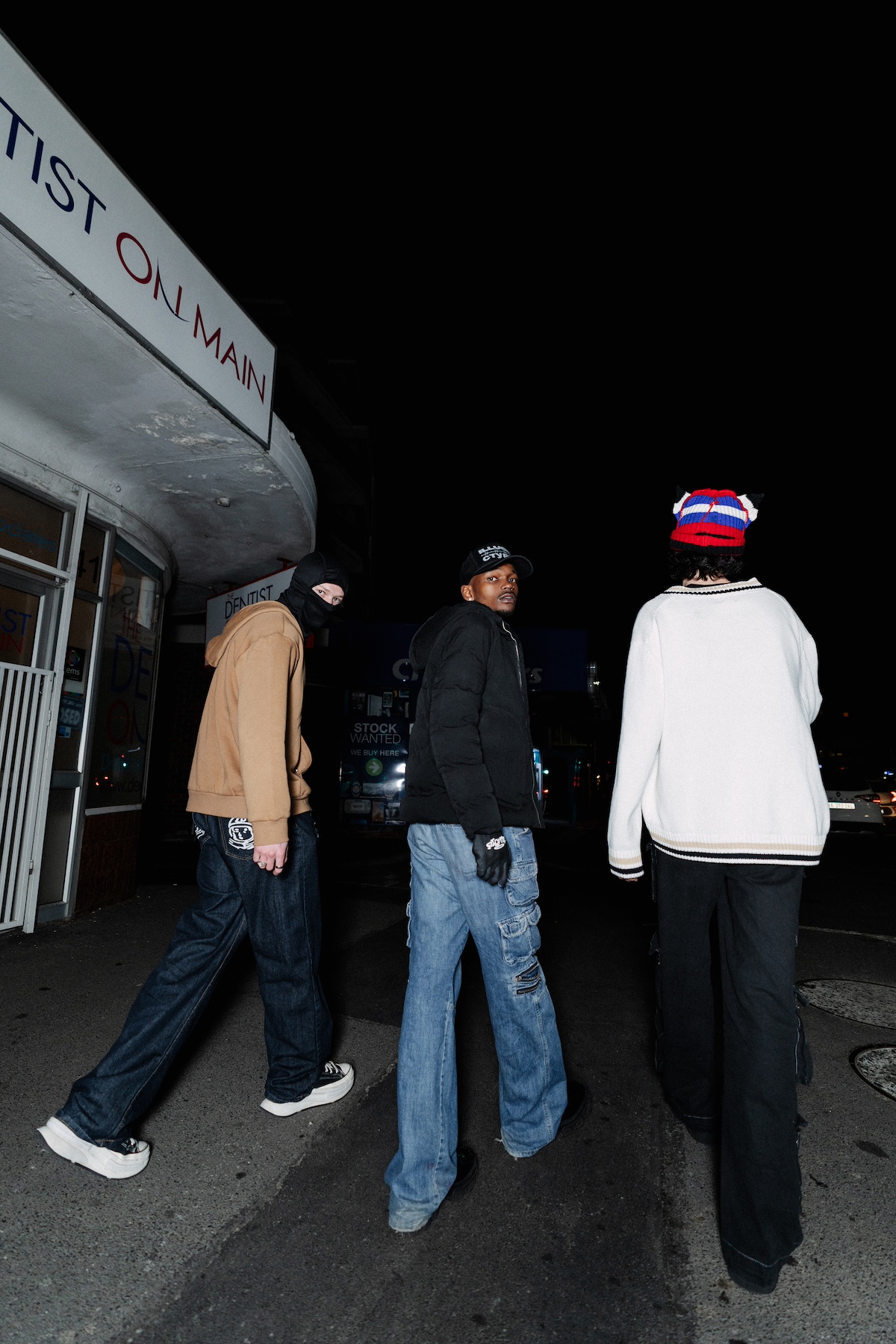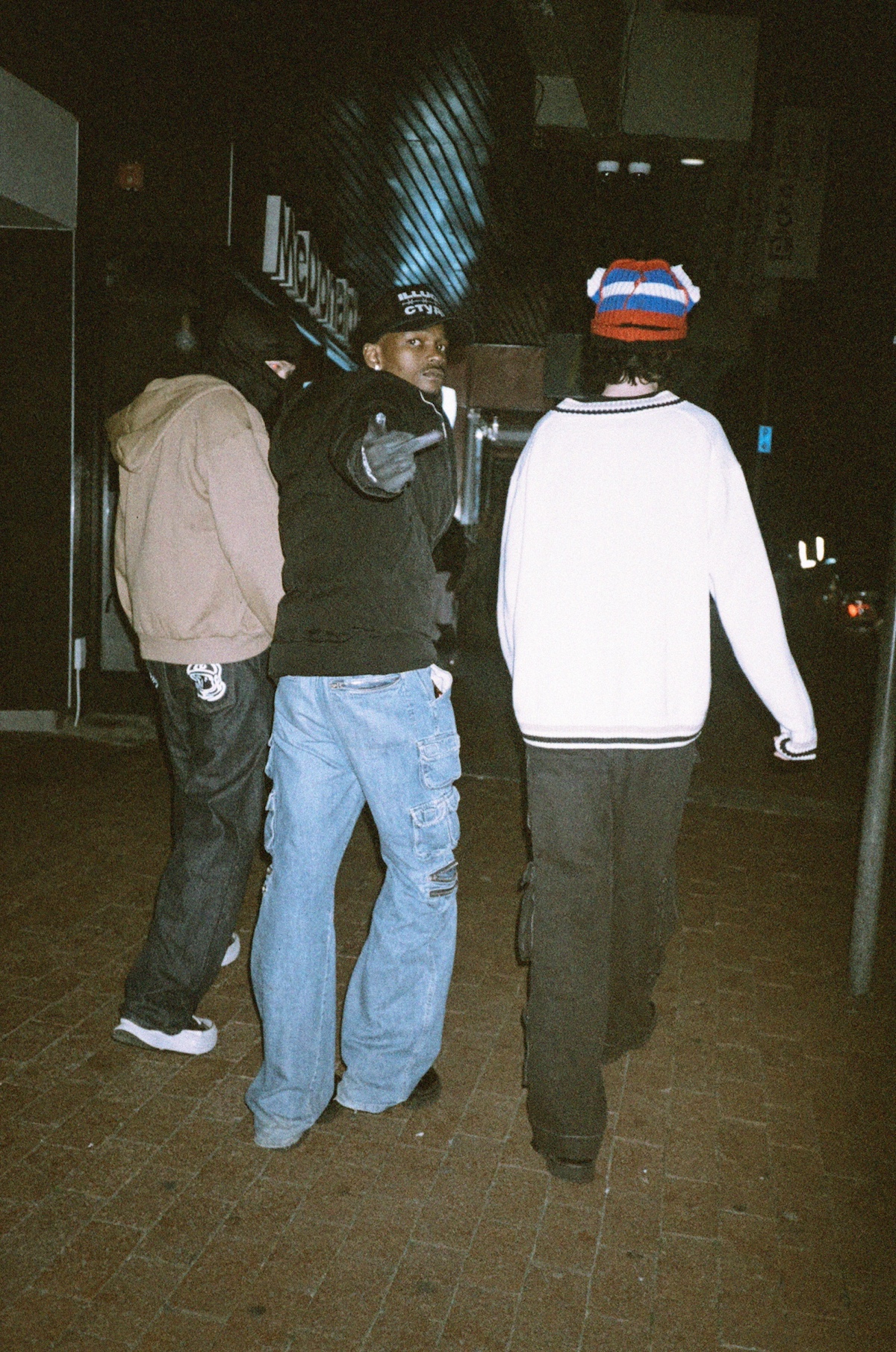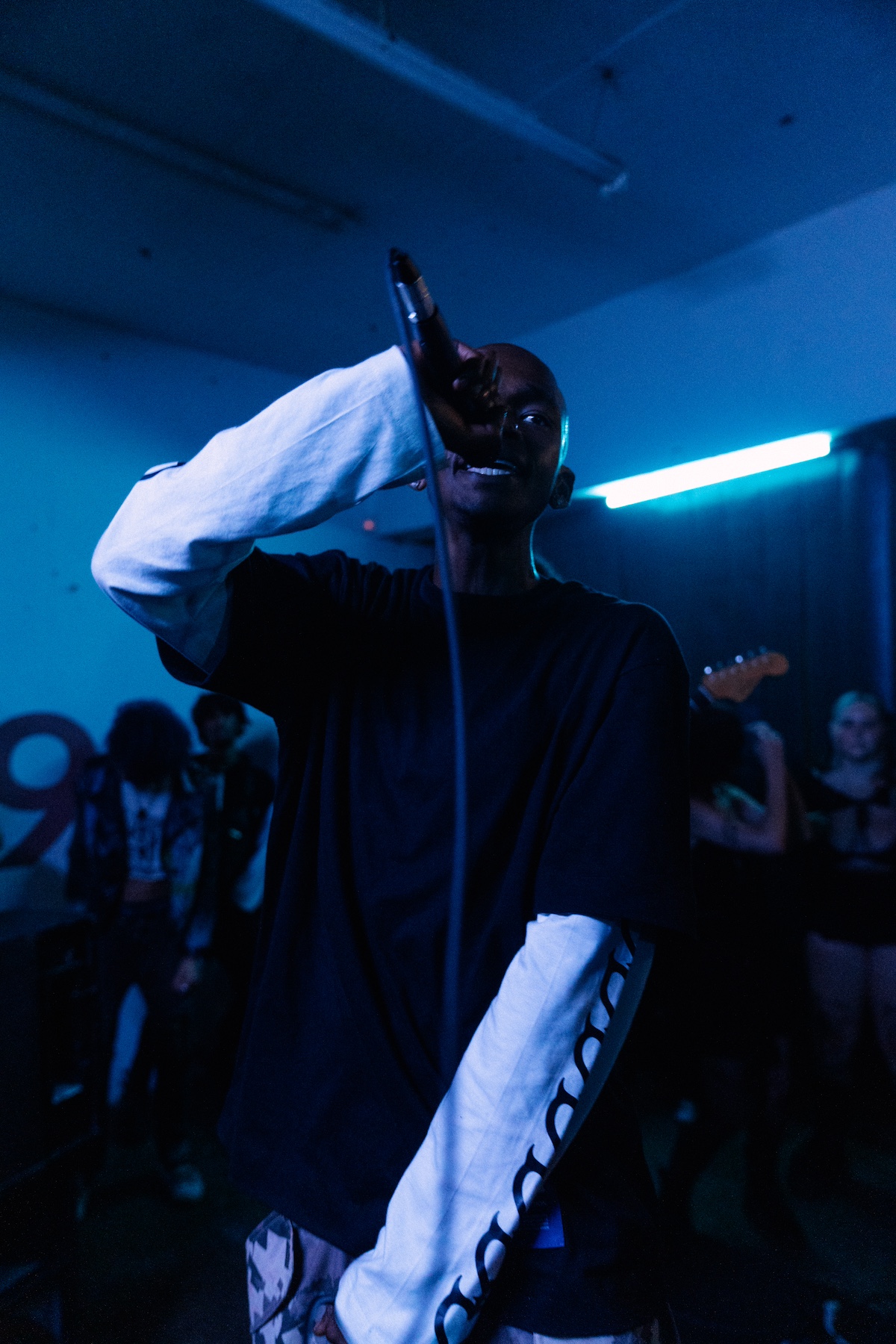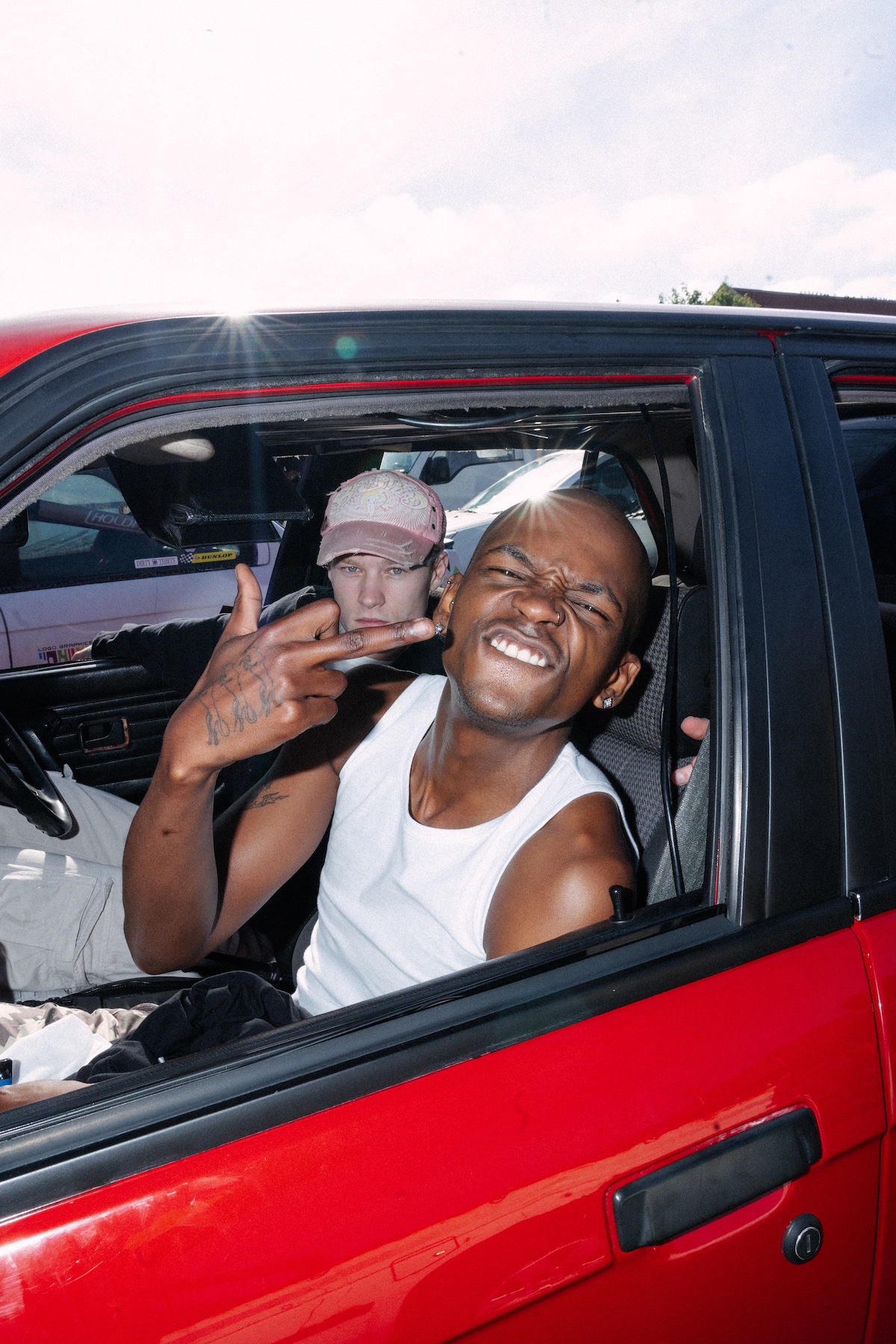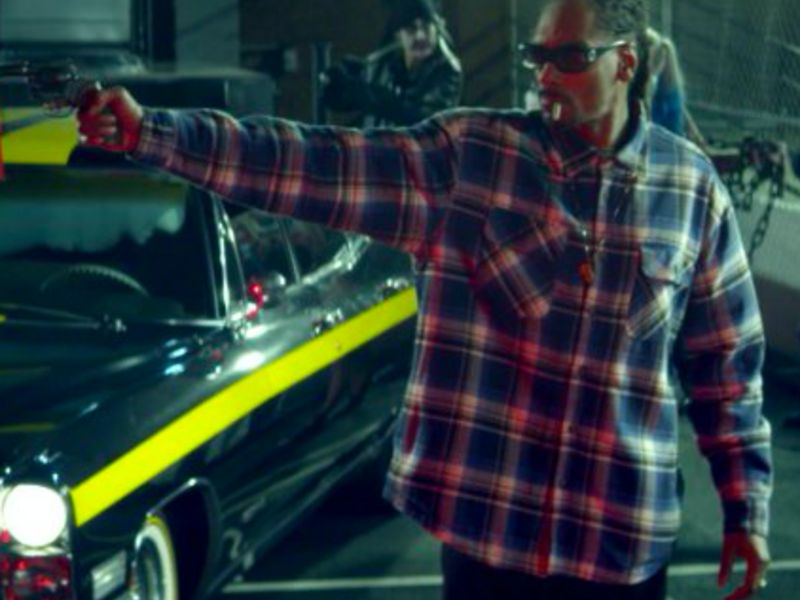Bad Taste Is In: The Dare Tells All
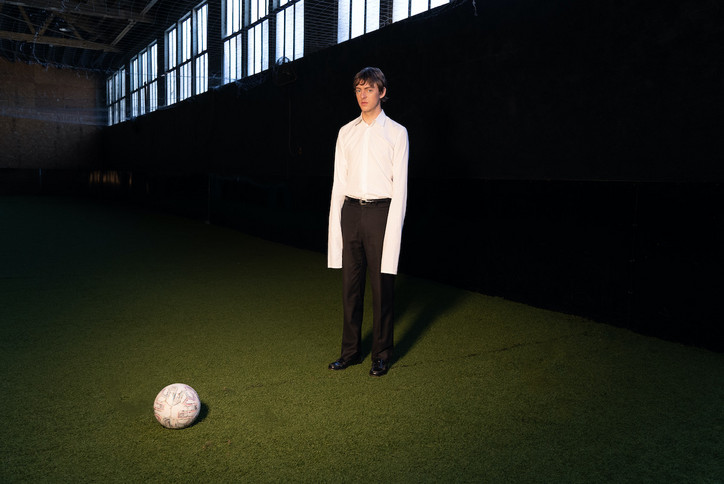
The Dare is unabashedly debauched to the point of obscenity. His music is cocky — clunky and low with no shortage of cowbells. It's loud, fast, and gritty. It's not the kind of music you’d play for your mother and he makes no attempts to sanitize it.
He's no blushing singer-songwriter and he doesn't think otherwise; he’s not trying to be political, nor highly conceptual. While none of us are advocating for an anti-intellectual movement, there’s something refreshing about art that doesn’t try to make itself seem deeper than it actually is. Where some devalue what they label as shallow, trashy, or lewd, we cherish the low-brow, the honest, and the hedonistic. You can eat the lotus, drink to get drunk, and revel in the carnal. Here we all are, in a post-COVID, pre-recession state of shamelessness — the only thing we can do is try to bacchanal our way through the end of the world.
There’s a certain appreciation for an artist who lets their music be received without control, especially in an era where performers often find it socially and financially beneficial to adopt an image of sincerity and vulnerability. In a landscape saturated with recycled bird and dirt metaphors, and a vocal style reminiscent of Phoebe Bridgers, sincerity as a marketing tactic ironically raises the question of its authenticity. While some people hold dear their air of intellectual superiority and asceticism, The Dare's music reminds people that indulgence is not a dirty word. It's cool to dance. It's cool to get messy. It's cool to sweat your way through a Gucci suit.
Harrison started making waves during the so-called "indie sleaze revival," a term subject to debate but indicative of the digital era's penchant for labeling, reflective of a neurotic self-curation and commercialization that reduces individuals to their perceived consumptive value. Yet, as digital cameras return and preciousness finds no place in the current economy, raunchiness and swagger become oddly attractive. Maybe I'm just regurgitating a sentiment especially pronounced in the downtown nightlife microcosm, but there's been an embracing of attitudes reminiscent of a bygone clubbing era. Whatever it was, The Dare unintentionally became the poster boy for it all, even if against his own wishes. Perhaps it's time to remove him from the weird "indie sleaze" pedestal we've placed him on.
The first time Harrison and I met, the first thing I noticed was a pair of bongos sitting in the corner. Maybe I didn't listen right the first time, but I don't think I heard bongos on The Sex EP, unless there was a quiet drumming behind lyrics like "I'd probably fuck the hole in the wall the guy before made." Our days were drastically different. I had just rushed over from my first class of my final year of undergrad, while he was navigating show invites and scheming to make a cameo in a photo with Ice Spice — a common ground, an easy conversation starter, truly the people's princess.
Harrison Patrick Smith— I gotta get a pic where I’m just standing way in the background. [Laughs]
office— Like trail cam footage.
Pretty much.
You gotta get her on a track.
I don’t know if that’s possible — I don’t know what’s in it for her. She’s already cool, famous, rich.
But you have bongos.
Yeah — she can’t get this anywhere else. [Laughs]
How did you first get into music?
My parents forced me to play violin when I was really young — like 4 or something — and I hated it. And around age 12, they gave me this ultimatum, that I could quit violin and play guitar, so I picked guitar. That’s when I was actually able to play music that I liked. I messed around in some bands in high school, but college is when I started seriously writing songs and touring. And then when I moved here, that’s when I learned how to DJ, throw parties, and play bigger shows.
Do you remember any violin?
No, I’m really bad at it. [Laughs]
Where’d the name come from?
I was just brainstorming random ideas and picking the best one — that’s how I do everything. But that was the best one out of like, twenty. The other names were pretty bad [laughs] they were over the place. One was “Closer,” one was “Spandex” or something like that. I wasn’t even sure of what the aesthetic of the project was going to be yet. I didn’t know what The Dare was, but the name sort of signified everything about the band without even listening to it.
So, you started the project not really knowing where it was going.
It was coming out of COVID. I knew I wanted to make dance music in any way, shape, or form, but I didn’t know exactly what kind. I had only made a couple of songs in that style, but my old band was disinterested — the songs didn’t fit. It was really just the birth of this project, and it’s still only four songs released. So, The Dare is still a baby project. And I don't even know what it's going to become.
Was “Girls” the first single that came out of The Dare?
Technically, I put out the song “Bloodwork” under my old band name then took it down once I realized I wanted to start a new band. “Girls” was the debut single last summer, but it didn’t really pop off immediately. It’s funny, because I tried sending it to a couple of labels beforehand, and nobody really cared about putting it out, When I did put it out, it sort of snowballed, real organic growth. People just heard about it through word of mouth and were all really excited about it. That’s when things got crazy, really fast, it probably took a month or so to feel the hype.
I know this is gonna be an eye-roll question, but —
What’s my favorite color?
Not what I was gonna ask, but now that you say it…
Black. Or pink. Maybe a nice red.
Good choice.
Thank you.
Do you think this newfound nostalgia for the early 2000s helped get “Girls” as big as it did?
Definitely. Before I put the song out, there were already two years of nostalgia for that era in fashion, but I didn’t really care about that until recently. It never occurred to me in the making of the music. I just became obsessed with dance-punk and electroclash and bloghouse, and all these genres from that era. Maybe it was something in the air that led me to that music at the same time people were getting into that kind of fashion. Maybe I was just a part of a larger cultural interest. But for whatever reason, it felt like nobody cared about the music part of all that until the fashion part. I remember showing my friends The Rapture and Chicks on Speed and they didn’t really care for it. But after putting out “Girls”, especially in New York, there was a lot more interest, and then the people from the fashion world came and took over.
I feel like a lot of the new bands in New York are more fashion-adjacent, compared to the Brooklyn indie rock scene, which I used to be much more a part of. It’s funny, because even the music from the early 2000s was heavily affiliated with fashion and dressing up and performance. But Fischerspooner doing stuff like playing in Starbucks just for fun — that’s like, the opposite of a serious indie rock show.
Everyone talks about you spearheading the indie sleaze revival, but from what I’m hearing, you didn’t ask for that, you were sort of just thrust into it.
Yeah, that definitely wasn’t my intention. I just felt that nobody was using those sounds, those sonic palettes, or those attitudes. I wanted to bring that into now and make something new, not just rehash the past. I’m happy that there are a lot of cool new bands that are more aligned with the things I like — at least more than what was happening in New York five or ten years ago.
If you try and do everything from a lens of nostalgia, you’re not going to get anything new. You’re definitely doing your own thing. You didn’t even ask to be called “indie sleaze,” right?
I didn’t like the name. It sounds horrible. They could’ve come up with a much cooler name, “the electroclash revival” sounds better. “Dance punk revival” sounds better. Indie sleaze is too fashion adjacent — it’s more about the photographs and the clothes more than it is about the sound of the music. The music itself is electroclash, dance punk, bloghouse — any of those things are more fitting and better on the ears.
There’s all this talk about this new thing, and in a way it doesn’t really exist. I mean, it does, and there are a bunch of new bands, but none of them really cleanly fit into whatever anyone thinks that label means.
[Smith hits a (strawberry, pina-colada) vape]
You’re not being too precious when you sing about sex — you’re singing about it from a messy, purely carnal perspective. Some people may call that distasteful. What do you have to say to people who think your music is offensive or lewd?
Hah. If you think my music is offensive and lewd you might be living under a rock.
There’s a weird fake-deep sincerity and candor that’s plaguing a lot of new music, but you’re not trying to make anything sweeter than it actually is. Can you talk about that? Is there something liberating about not having to be so cerebral all the time?
I just like music that feels honest. People will put on the act of being sensitive, just as they will put on the act of being too cool, or being smarter than they are. I just don’t like music that’s trying to convince me of anything and it’s always immediately obvious, most artists slip into that trap once in a while and find themselves making something to please someone else or to serve an extramusical function and it usually never ends up good.
The indie scene can be so serious about itself sometimes, but for you, what’s the importance of the low-brow, the obvious, and “bad taste”?
I forget who said it, and I’m gonna butcher the exact quote, but the gist of it that having good taste is having good taste in bad things. That’s one of those mottos that lives in my head rent free. In my life I’ve seen things considered “bad taste” get reappraised and become “good” over and over. There’s a lot of freewheeling expressed in the muck of bad taste and that’s usually where a lot of the exciting and threatening changes in art happen.
Is the sound of the Sex EP the official Dare sound?
Not necessarily. In the wake of “Girls”, a lot of these new bands were more influenced by the darker slides of electroclash. And I have a really deep love of disco and funk music — I wanted the joy and the playfulness of that stuff to be a big part of my music. I want to write songs that are the thesis statement of the parties I throw, and the feeling I want at those parties. It shouldn’t be exclusive or expensive. I just want it to feel like this sweaty, anything goes, “lose yourself in the music” kind of vibe. [Laughs] I wanted to put those feelings into a song and have something to play at my parties.
Do you think Freakquencies has been successful in that way?
I think so. I’ve been doing it at the same place for about a year and a half, almost every week or at least a couple of times a month. It’s free and if you show up early you can get in easily, you might just have to wait in line a bit, but there are no tables, no bottle service — there’s none of that weird stuff that you get at the more expensive clubs in New York, and it’s still fun.
My band has gotten big enough to the point where people are coming for me, so Freakquencies are definitely starting to feel a little more like a show and less like a party, which is fine, but it’s possibly time for some growth or change — something to keep it interesting — because I really want the focus to be on the music and the party. I’m trying to turn the focus away from the DJ; I don’t want it to be a whole EDM thing, where it’s a bunch of people just looking up at the DJ and doing all this goofy shit with their hands.
Leading up to and during COVID, people weren’t really putting in effort into their performances — everything was paired down, like videos of people in their bedroom with their guitars. It became gauche to put effort into a show, but now, especially when tours are coming back, there’s more of a “spectacle” to everything. Where do you fit into all of that?
I like all kinds of shows big and small. Whatever conveys the emotions of the music properly is what’s important to me. My music is raw and rhythmic and playful and I want the show to reflect that. Electroclash as an era was in love with dressing up and karaoking and playing in random places (Astor Starbucks), so I want my shows to pay homage to all that stuff as well.
You said you were trying to turn the focus away from the DJ — and that’s why you wanted Freakquencies to undergo a little change. Do you think there’s too much focus on you as a person and not the music?
At that point I was just a little bit burnt out on DJing, and now coming off of this big run of live shows I’m excited about it again. I try not to worry about what people are focusing on, I can’t control it, all I can do is make music.
Most notable reactions to both the EP?
A lot of my heroes — people I grew up listening to — reached out and said how much they liked it Getting to work on music with them and spend time with them, that’s been the best thing about it. The worst is reading comments on Twitter from random internet haters. It’s never fun to look at. When anything starts getting really big, people are immediately averse– not that I’m that big [laughs] but there’s been a factual sort of rise in popularity, and there’s nothing to be gained by saying, “This is great. I love this.” You win Twitter points by being like, “This fucking sucks.”
I want people to get joy from the music and experience — have a positive reaction if possible. But there will always be people who don’t like it, and that’s sort of hard to accept. It’s easy to accept in theory, but it’s much harder when you’re confronting it directly and reading it. Humans are just wired to remember negative feedback and forget the positive ones. So, if you’re making stuff and facing a lot of bad stuff, it’s really important to take stock of the good things and not forget them.
If your aim was to make people happy, you definitely got that down. I don’t know if you needed to hear that from me. There’s not a lot of music out there that’s like, “I love having fun.”
There is, but it’s sort of contrived and not coming from an authentic spirit of joy. It’s coming from a marketable, commercial feeling. It’s like when people say that something’s going to be “the feel-good song of the summer.”
But inadvertently, you did sort of make the feel-good song of the summer.
For a small group of people in New York, maybe. I do see random people post TikToks from random countries where they’re at a party and people are going crazy and they’re playing my song. And I have tons of friends and DJs in LA who play it all the time. It’s very heartwarming.
At least in New York, you know the people here are having a good time, which isn’t to say that the people downtown are the most important people ever — quite the opposite. It's weird — a lot of people think what they’re doing is totally new and revolutionary.
In order to make anything, you have to have some feeling like that, otherwise you wouldn’t do it. Most things aren’t new or revolutionary. But you just have to believe it and fake it until you make it, or else nothing will get made. Why would you sit down if you’re thinking, “I’m just gonna make this over and over again.”
Your take is so much more forgiving than mine. You just got back from the homeland (shows in Europe, for everyone who says you look like you could’ve been in the Beatles). Does it seem like there’s anything different going on over there?
The internet has globalized a lot of trends in music and art. It’s not really different from New York except everyone talks funny.
Do you ever get tired of people asking you about partying?
I don’t think people even ask me about it that much, but I do get tired of partying. I do think I have more stamina for it than most people.
Is that a good thing?
When you’re an artist, it’s really good to stay up late with other artists. You end up meeting people, you end up going to places you wouldn’t expect, and you have these experiences that you can write into songs or take home to whatever you do. The more you stay in, the crazier you get, and the less actual life experience you’re getting. That’s when the work becomes less enriched, so it’s really good to stay up late.
How late is too late?
Most nights probably don’t need to go past 3. But some definitely need to go until 7 or 8.
What’s your morning-after routine?
I love going to breakfast. If I’ve been out late, I’ll get up late and crawl over to some diner or one of my favorite spots in Brooklyn. I’m just trying to make it through the meal. I’m definitely taking Advil, drinking a lot of water. That’s about it, nothing special.
I typically like the day after big parties. Usually, there’s not much to do, or I intentionally don’t plan anything to do, and then I just kind of spend the day walking around and enjoying myself, you know, once the hangover goes away and then you can just stroll and enjoy the day off.
What’s an inspiration you have that no one really knows about?
Belle and Sebastian. Stuart Murdoch is the best storyteller. The songwriting — the arrangements and the compositions — they’re unreal. And a lot of the songs are really sexual in a weird way — in this casual, understated way that I find super compelling. Maybe it’s because I’m not from Glasgow or whatever. He’s just a huge influence on the kind of songs I want to write.
They’re super cute — do you know Kimya Dawson? I feel like you would fuck with Kimya Dawson.
She’s cool. I like a lot of freak folk stuff in general. There’s this new artist from New York — Joanna Sternberg. I don’t think she’s gotten a lot of press lately, but she’s put out this incredible record that’s probably one of my favorite records of the year. But I like Kimya Dawson. It’s interesting because her scene which was freak-folk was adjacent to electroclash in New York, and both scenes were super hated when they first came into being but then they just established themselves over time and now there are bands from both of those scenes that are sort of canonized.
And what’s the state of the scene now?
From talking to other people who throw parties, everyone’s sort of feeling like the honeymoon period has ended. When COVID was happening, rents fell a lot and a lot of people moved downtown, but now people are getting priced out. As that happens, I feel like all these parties started because people could go out again and everybody wanted to be a part of something like that, but it’s been a year or so since that feeling kicked in collectively, and I think people are starting to get a little tired of partying all the time, so it feels like this is going to be a kind of period of change, where people change where they party. I don’t think people are going to completely stop partying, but they won’t be going out as much as last year. Some parties are gonna stop, and new ones are going to pop up in odd places.
What’s your first memory of Home Sweet Home?
I went there after a friend’s art opening right when I moved to NYC and there were two guys spinning Todd Terje to an empty room. I remember being like, “Huh cool little place,” and then forgot about it for two years until my friend Sam asked me to come in and DJ.
You said you think it’s time for some growth in your parties, are you planning on keeping Freakquencies going?
I am. But I’ve also been thinking about trying different things, just to keep it interesting and fun and get different people in there. The one I did for Fashion Week was at Good Room, which is five times the size of Home Sweet Home, and it’s a real dance club. But I kind of want to keep doing at Home Sweet Home forever. I just really like it, and it feels like home base. I like when the party is small because when it gets too big, it’s less intimate. The more unwieldy things get, the less control you have over the feeling. But I do want to introduce sister parties to Freakquences that have intentional and different aesthetics.
Why was it on a Wednesday instead of your normal Thursday?
Because of the Lucky Jewel show. Also, Good Room is very specific about what days you could book.
Have you heard that stuff: “Wednesday is the new Friday?”
Who says that? [Laughs]
The people who party on Wednesdays! Can you tease anything for the future?
Not yet, but there will be a lot more very soon.
What’s your uniform if you can’t have the suit?
T-shirt with boot-cut jeans and pointy boots.
Thoughts on Poppers?
Good to do under five times a night, once every two weeks.
Thoughts on your fangirls?
Salute.
